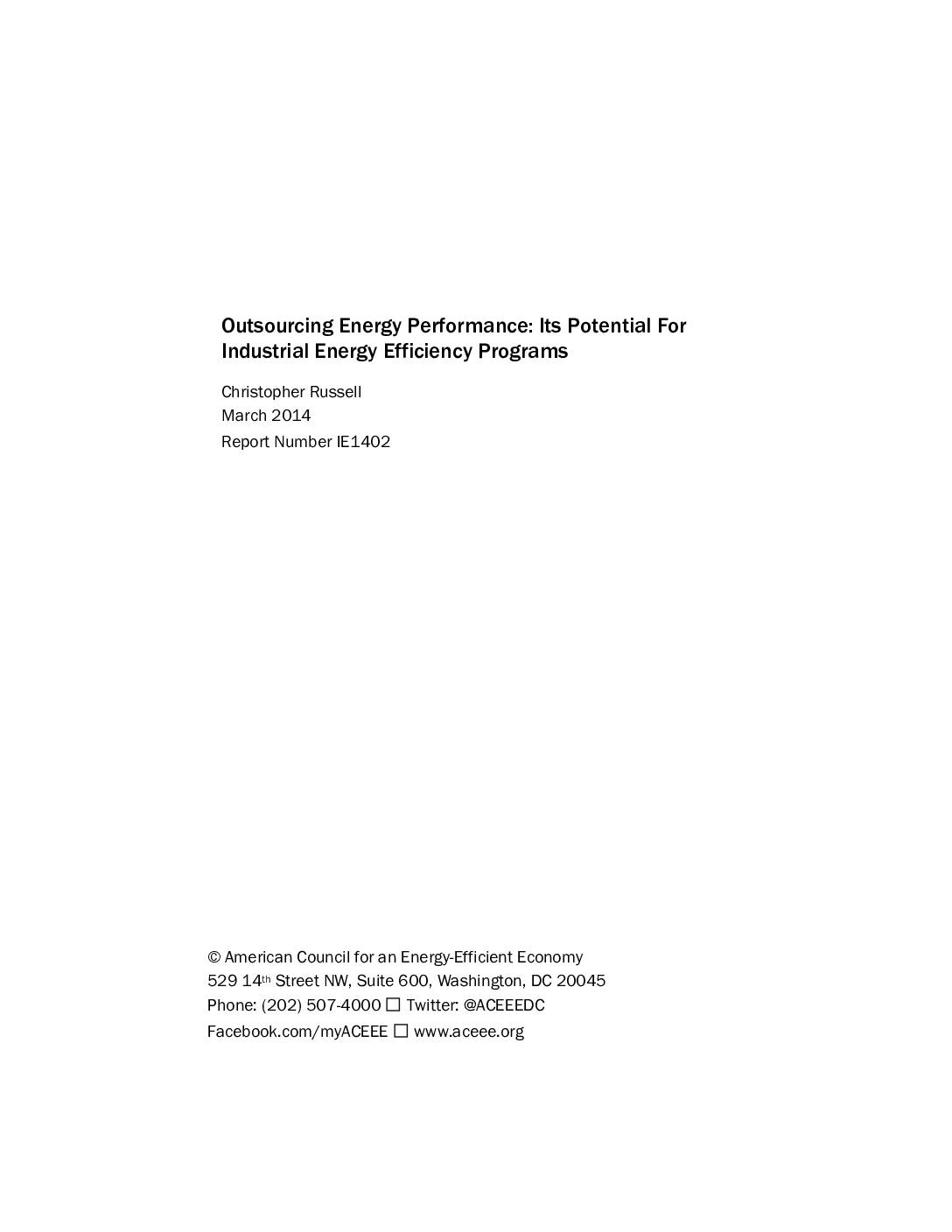This report evaluates outsourcing as a tool for achieving the energy efficiency program goals.
While offered to industrial and other large facilities primarily to ensure the reliability of energy performance, energy service outsourcing can also enhance energy efficiency in these facilities. The report describes the business models and considerations for both providing and consuming outsourced energy services. Awareness of these issues is crucial to the success of any energy efficiency program that attempts to achieve its goals by relying on the market for energy service outsourcing.
Outsourcing appears, at first glance, to address all the classic impediments to industrial energy efficiency by providing some combination of capital and expertise to perform common energy functions. Close examination, however, reveals risks that accrue to both parties in any outsourcing relationship. Potential outsource providers and consumers alike are often intimidated by these considerations.
None of this is to imply that energy service outsourcing is impossible to pursue. A literature review and interviews of 41 experts—both energy users and solution suppliers—are the basis for this report’s evaluation of industrial energy outsourcing concepts. The conclusion is that outsourcing can be a viable business solution for industrial facilities. It may be advantageous for regional energy efficiency resource acquisition programs to foster the market for these services. Doing so will require substantial program support to educate and develop the market. Outsourcing can leverage existing market solutions and expertise to achieve both societal and corporate benefits of reduced energy use.
Share this

Sectors: Cross cutting, Industry, Power sector, Renewables
Country / Region: Northern America, United States
Tags: corporate reporting, energy, energy efficiency, energy services, industrial energy efficiencyKnowledge Object: Publication / Report
Published by: ACEEE
Publishing year: 2014
Author: Christopher Russell
